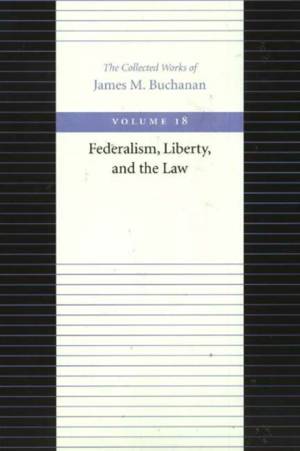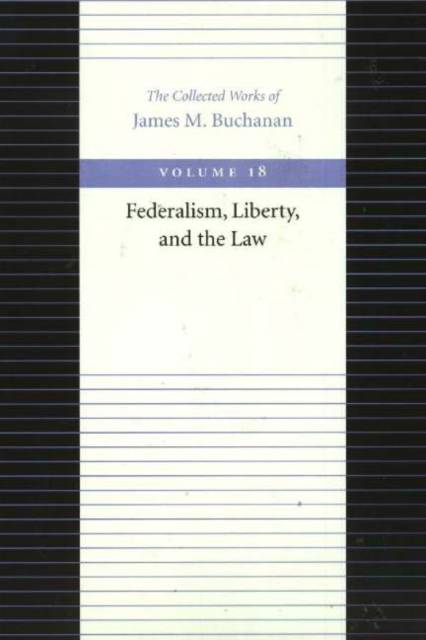
- Retrait gratuit dans votre magasin Club
- 7.000.000 titres dans notre catalogue
- Payer en toute sécurité
- Toujours un magasin près de chez vous
- Retrait gratuit dans votre magasin Club
- 7.000.0000 titres dans notre catalogue
- Payer en toute sécurité
- Toujours un magasin près de chez vous
Description
As diverse as the papers presented in this volume may seem at first glance, all of them touch on two characteristic themes of James Buchanan's work: the respect for individual sovereignty and the threat of monopoly power on the rights of the individual.
In his foreword, Hartmut Kliemt says, "As opposed to more extreme and more utopian libertarians, [Buchanan] well understands that in our world it takes a state to defend the individual from the state. Buchanan, therefore, is not an anarchist but, rather, what may be called a 'reluctant anarchist' who accepts both that the state is the greatest threat to individual sovereignty and that without some statelike monopoly, individual sovereignty cannot be protected."
The twenty-six essays included in Federalism, Liberty, and the Law are grouped into these categories:
- The Analytics of Federalism
- Federalism and Freedom
- Liberty, Man, and the State
- The Constitution of Markets
- Economists, Efficiency, and the Law
- Law, Money, and Crime
The central issue that unites the pieces in this volume is monopoly power and its control. As a libertarian, Buchanan sees government as the greatest threat--and also the greatest protector--of individual liberties.
James M. Buchanan (1919-2013) was an eminent economist who won the Alfred Nobel Memorial Prize in Economic Sciences in 1986 and was considered one of the greatest scholars of liberty in the twentieth century.
Spécifications
Parties prenantes
- Auteur(s) :
- Editeur:
Contenu
- Nombre de pages :
- 461
- Langue:
- Anglais
- Collection :
- Tome:
- n° 18
Caractéristiques
- EAN:
- 9780865972483
- Date de parution :
- 01-08-01
- Format:
- Livre broché
- Format numérique:
- Trade paperback (VS)
- Dimensions :
- 147 mm x 226 mm
- Poids :
- 793 g

Les avis
Nous publions uniquement les avis qui respectent les conditions requises. Consultez nos conditions pour les avis.






